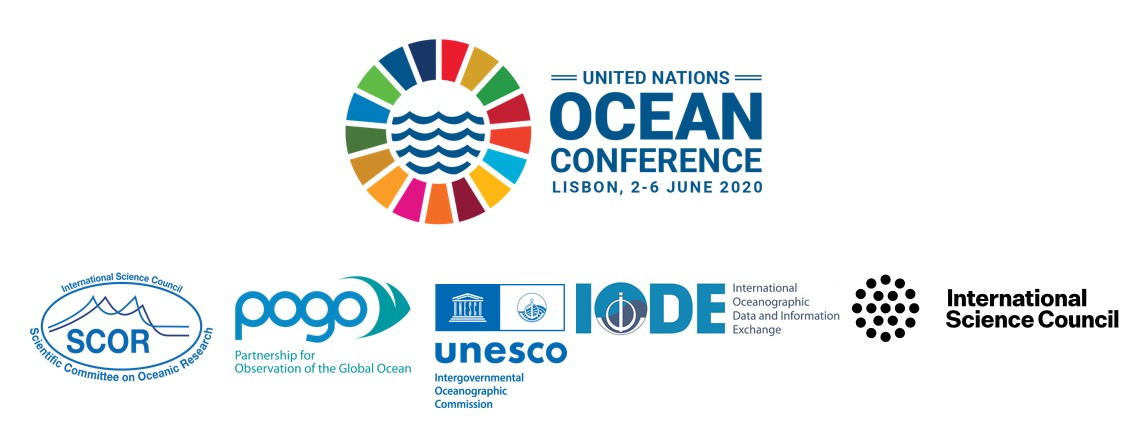
UN Ocean Conference side event: Developing the capacity we need for the ocean we want
Designing and implementing an action plan to accelerate global capacity development efforts and responses to achieve SDG-14 and the 2030 agenda in the current decade
Organizers:
The Scientific Committee on Oceanic Research (SCOR) along with the Partnership for the Observation of the Global Ocean (POGO), the International Oceanographic Data Exchange (IODE) of the Intergovernmental Oceanographic Commission (IOC) of UNESCO, and the International Science Council (ISC).
Date: 29 June, 6-8 pm Lisbon (UTC+1) time
Mode: Virtual
Description:
The ability of coastal nations to manage their coastal and marine environments is vital in the development and maintenance of national sustainable blue economies and to achieve the 2030 Agenda for Sustainable Development. Thus, capacity development is the key to creating an appropriately trained workforce able to co-design science-based knowledge and innovative solutions. This trained workforce is required to develop a sustainable blue economy, particularly in developing countries, and to ultimately achieve SDG14.
This side event will focus on how to design and implement the capacity development we need to achieve the 2030 agenda by showcasing:
· Existing global and regional initiatives that build upon the foundation of capacity development for ocean sciences
· Lessons learned from case studies and/or success stories from beneficiaries of training programs
· Recommendations on an action plan for the ocean for scientists, policymakers, local communities and the private sector to accelerate global CD efforts and responses to achieve SDG14 in the current decade
Program:
The 2022 UN Ocean Conference seeks to propel the needed science-based innovative solutions for implementation in global ocean action. Scientific solutions require knowledge, and knowledge requires developing capacity. The proposed side event will provide a framework on capacity development initiatives and how partnerships have worked to strengthen them, on lessons learned from their implementation, and on a vision and recommendations for future actions, contributing to the conference’s session on “Increasing scientific knowledge and developing research capacity and transfer of marine technology”. Major topics for discussion are:
- Developing capacity in ocean observations – opportunities (L. Krug)
- Delivering the training we need for the ocean we want through the Ocean Teacher Global Academy (F. Cardoso Martins)
- The special case of Small Island Developing States (R. Zitoun)
- An NF-POGO trainee perspective – How immersive training and alumni network create international partnership opportunities (P. Carrasco)
- Designing observation networks with data and capacity development in mind: challenges and opportunities (R. Seabra)
- An Action Plan for the Ocean – lessons from the Global Pandemic (C. Robinson)
Registration is now closed
Speakers:
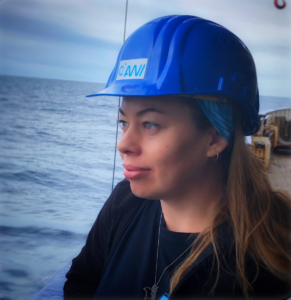
• Dr. Lilian Krug – Partnership for Observation of the Global Ocean (POGO) and Centre for Marine and Environmental Research – University of Algarve (CIMA-UAlg), Portugal
Krug is a specialist in satellite oceanography and is dedicated to research and capacity development in observational oceanography. As Scientific Coordinator for POGO, she helps provide opportunities for other early career ocean professionals (ECOPs), particularly from developing nations.
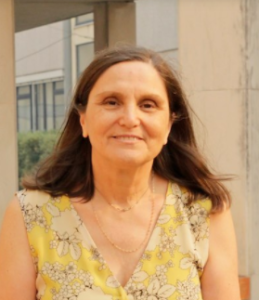
• Dr. Filomena Cardoso Martins – Department of Environment and Planning (DAO) and Centre for Environmental and Marine Studies (CESAM), University of Aveiro, Portugal
Cardoso Martins is a geographer with a PhD in Sciences Applied to the Environment (UA), she is a professor and researcher at the University of Aveiro. Director of the Environmental Science and Engineering Doctoral Program and Vice-Director of the Master in Marine and Atmospheric Sciences. Effective member of the Governance, Competitiveness and Public Policies (GOVCOPP) Research Unit and collaborator of the Centre for Environmental and Marine Studies (CESAM) Associated Laboratory. Responsible for coordination of the Ocean Teacher Global Academy, Regional Training Center – Portugal (OTGA-RTC, PT), member of the Portuguese Committee for the Intergovernmental Oceanographic Commission (IOC).
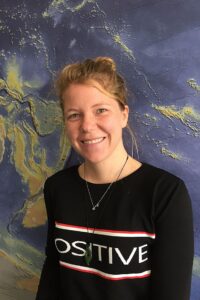
• Dr. Rebecca Zitoun – Marine Mineral Resource Group, GEOMAR – Helmholtz Centre for Ocean Research Kiel, Germany
Zitoun works as a Postdoctoral Researcher in the field of Trace Metal Biogeochemistry, Toxicology, and Environmental Chemistry. She is a member of the SCOR Committee on Capacity Development and was a consultant for the International Atomic Energy Agency (IAEA) on scientific and institutional capacity building in Small Island Developing States.
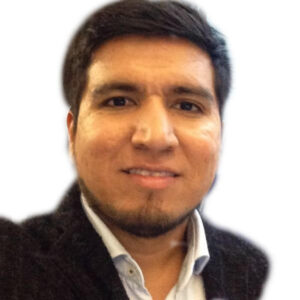
• Mr Pedro Manuel Carrasco de La Cruz – Helmholtz Institute for Functional Marine Biodiversity, Germany
Carrasco is a Peruvian biologist specialized in marine environments and ecosystem models and a postgraduate in Observational Oceanography at the NF-POGO Centre of Excellence at the Alfred Wegener Institute for Polar and Marine Research (AWI). Currently, he is a PhD candidate at the Biodiversity Theory Group of the Helmholtz Institute for Functional Marine Biodiversity (HIFMB).
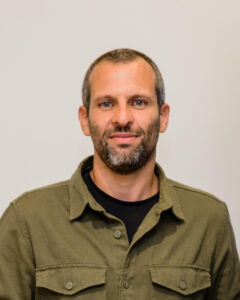
• Dr. Rui Seabra – Centro de Investigação em Biodiversidade e Recursos Genéticos (CIBIO) and BIOPOLIS Program in Genomics, Biodiversity and Land Planning, Universidade do Porto, Portugal
Seabra is an intertidal ecologist interested in how temperature influences species’ distributions across all scales. Seabra heads the implementation of a temperature and biodiversity observation network that will monitor more than 160 rocky shores across the Atlantic for over a decade. This network will operate collaboratively and will represent a major opportunity for the exchange of expertise and capacity development.
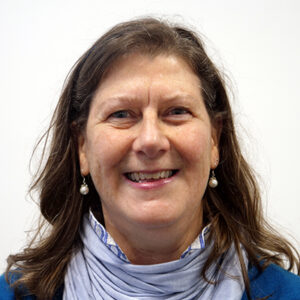
• Prof. Carol Robinson – School of Environmental Sciences, University of East Anglia, UK
Robinson studies the role of marine bacteria, phytoplankton and zooplankton in the global cycling of carbon and oxygen, with a particular focus on determining the magnitude and variability of microbial respiration using a combination of ecological and biogeochemical techniques. She has extensive experience in leading international multidisciplinary research programmes including the Atlantic Meridional Transect, the Integrated Marine Biosphere Research project (IMBeR), and a passion for outreach, mentoring and engagement.
Summary:
This side event brought together international experts on capacity development in ocean science to inform about the existing training opportunities and to provide examples of international engagement and multi-thematic networking across stakeholders through case studies. The event invited participants to take advantage of these opportunities and to get involved in developing an integrated ocean community aimed at strengthening capacity in ocean sciences from regional to global scales.
Key issues discussed
- An overview of existing opportunities on developing capacity in ocean observations, particularly of the NF-POGO Centre of Excellence in Observational Oceanography and the POGO-SCOR Visiting Fellowship, along with the long-term benefits for the trainee.
- The Ocean Teacher Global Academy (OTGA) as an e-learning platform and a UN Ocean Decade endorsed activity to deliver capacity in several ocean related topics including sustainable use of marine resources, data management, marine spatial planning, tsunami awareness, ocean acidification, prevention and reduction of marine pollution, among others.
- The special case of Small Island Developing States and the similar sustainable development challenges they face including remoteness, growing coastal population, limited resources, susceptibility to natural disasters, vulnerability to external shocks, fragile environment, and dependence on international trade, among others.
- Lessons learned from a NF-POGO trainee perspective, and how immersive training and alumni network can create international partnership opportunities.
- The challenges and opportunities to design observation networks focused on data and capacity development using as example a state of the art, low-maintenance and long-lasting microhabitat temperature monitoring infrastructure on rocky shores.
- An Action Plan for the Ocean that considers developing a framework to assess and rank risks related to a changing ocean, identifying actions in response to risks, and defining a set of adaptative actions and plans.
Key recommendations for action
- Ocean science capacity must be regionally focused and equitably distributed since research priorities and related capacities are highly heterogeneous among nations.
- Capacity development is everyone’s responsibility and requires collective actions.
- Effectiveness of capacity development programs must be regularly assessed to ensure that development activities are effective and appropriate to the political and social context in which they will operate.
- To achieve a successful blue economy, we need all coastal nations to engage and all sectors to contribute resources. Only through collective action can we develop the capacity to expand the skilled workforce required to generate knowledge for informed decision-making in the blue economy.